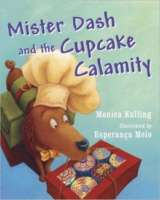
When Madame Croissant decides to open a bakery, the baking world is thrown into turmoil. Daphne, Madame’s granddaughter, helps with Mayor Chester Field’s order for five hundred cupcakes.

When Madame Croissant decides to open a bakery, the baking world is thrown into turmoil. Daphne, Madame’s granddaughter, helps with Mayor Chester Field’s order for five hundred cupcakes.

A young boy is disappointed when the girl he used to play with is no longer interested in their old pursuits, until they bond while planning a birthday party.
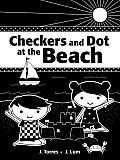
Checkers and Dot at the Beach invites us to follow along with Checkers and Dot as they explore the beach, counting as they go.
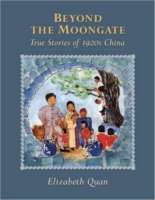
MOONGATES DOTTED THE LANDSCAPE OF OLD CHINA. Ancient Chinese architects had sculpted stone piled on sculpted stone to form round doorways, with the spiritual symbolism of the full moon. To step through one of these doorways was to step into a world of peace and happiness…
And so it was in the 1920s that the Lee King family – father, mother, and six children, aged ten months to seven years – traveled from their home in Canada, across the Pacific Ocean, to inland China. There, they had the opportunity to step beyond the moongate into a land not yet touched by modern warfare or political unrest.
The story of the moongate, tells of the two “golden” years the family spent with Grandmother in a remote village in the south, which hadn’t changed for centuries.
Step inside and live the long lazy days of a China forever gone. The moongate beckons…

Matilda is a very good cat. She likes to sit quietly and read or water her flowers. Hans is very naughty. He makes too much noise and paints graffiti on the walls. When Hans goes too far and lets the animals out of the zoo, a reward is offered for information about him.
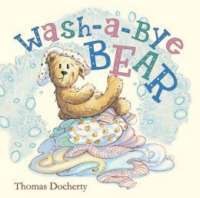
Flora loves her Bear dearly, but her mom says it’s time for him to go in the wash. Beautifully imagined scenes show Bear, in the wash, remembering how much fun they had getting grubby in the first place. When Bear is clean, he’s just not the same, so Flora sets out to have some fun and get him back to his dirty but lovable self again. Then, at the end of a long day, it’s Flora’s turn to have a wash–and good old Bear still loves clean Flora just the same.

At bedtime, Cedric the dragon wants his mother to read his favorite book again, and again, and again.
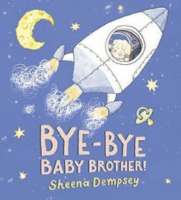
Tiring of a newborn sibling who demands all her busy mother’s attention, Ruby gets bored with endless solo activities and imagines creative ways to make her baby brother disappear, adventures that become so much fun that she decides to tag along.

The dinosaurs are back and this time they’re revving, roaring, and racing . . . to a dinosaur birthday party! Bursting with dinosaurs and vehicles of all shapes and sizes and with a delicious surprise ending, this is guaranteed to bring a smile to the faces of small boys and girls everywhere.
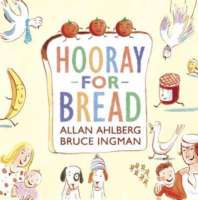
Early in the morning the baker bakes a delicious loaf of bread. So delicious, in fact, that by the time the sun goes down it has been gobbled up! Who eats it all? Well, the baker munches on its crunchy crust. The baker’s wife eats some toast for breakfast, and the baker’s son gets a cheese and ham sandwich for lunch. And let’s not forget the dog! As the loaf gets smaller, slice by slice and crumb by crumb, everyone eats their fill: ducks, fishes, birds, and even a teeny tiny mouse who nibbles up the very last scrap.